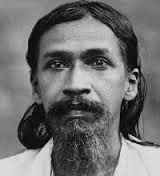Perspective
Apropos physical consciousness and health
(A conversation recorded on 19th July, 1943)
Disciple: A has written to someone in Bengal that the vital being in man is responsible for diseases and that the body has no part in it. What do you think of it?
Sri Aurobindo: You can say “matter” knows nothing about good and bad or sick and healthy. But the human body, I mean the physical consciousness, is not “matter”. It is conscious, and therefore it can have its own responsibility with regard to diseases.
Disciple: It seems A’s stand-point referred to repentance and expiation. He wanted to say that to punish the body for the faults of the vital being or of the mind was to punish John for Jack.
Sri Aurobindo: One may differ on that point too. To consider as if the body, the vital and the mind were so cut off from each other as not to have any mutual reaction is not true. So the physical can react on the vital being.
Disciple: But the physical being in us is not as conscious as the vital or the mental being.
Sri Aurobindo: The physical may be said to be more inconscient than the other parts, but that would not prevent it from exerting a very powerful influence on the other parts.
Besides, the decision to fast, or to do physical Tapasya, is taken by the vital and the mental being in man. It is not the body that takes the decision.
Disciple: But in the psychological paths of yoga physical Tapasya is not regarded as necessary.
Sri Aurobindo: The reason why physical Tapasya, or mortification of the flesh, is not considered effective or is discouraged, is that by itself it is not sufficient to bring about a change in the vital or in the mind. You may do Tapasya all right and yet the vital may remain absolutely unchanged.
Such a change can be more easily brought about by the consciousness acting directly without resorting to physical means. Consciousness has a more direct means of bringing about required change.
There is another reason for this discouragement: physical Tapasya, when properly done, brings about a great increase in energy, and then the result of it depends upon who takes hold of the energy. Generally it is seen that wrong forces take hold of this energy. In exceptional cases only can one go through without disaster.
The root of the whole trouble is in the subconscient, and so the difficulty arises from there.
But if the Tapasya is taken up by the consciousness — say, by some part of the consciousness like the vital, then it can effect the necessary change.
Excerpted from Evening Talks with Sri Aurobindo. (Recorded by A.B.Purani). 3rd Edition. Pondicherry: Sri Aurobindo Ashram; 1982, pp.210-2.
Share with us (Comments, contributions, opinions)
When reproducing this feature, please credit NAMAH, and give the byline. Please send us cuttings.


